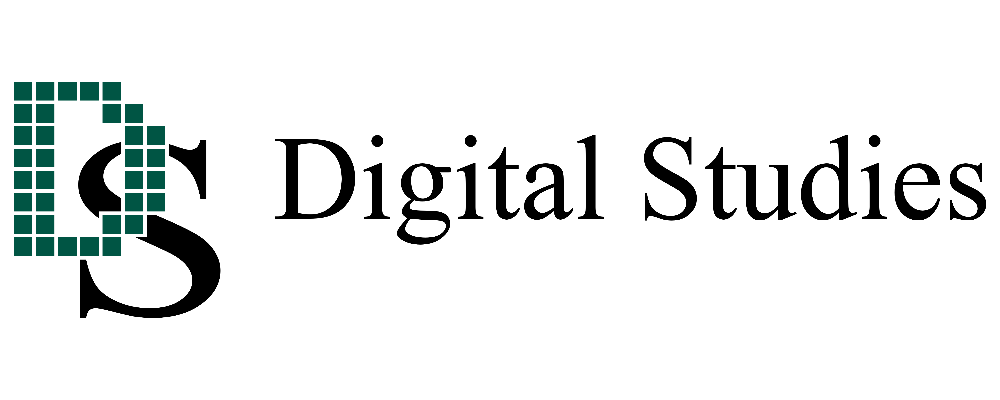Compte-rendu de la séance : Compte-rendu séance DS 16 septembre 2014
Le séminaire Digital Studies se déroule à Paris entre septembre 2014 et janvier 2015. Chaque séance invite deux membres du réseau Digital studies (lancé lors des ENMI 2012), à faire une intervention qui sera par la suite éditorialisée au moyen de technologies et protocoles contributifs. Si l’objet du séminaire est principalement la digitalisation des activités humaines, il cherche à explorer en général, au-delà de la problématique strictement numérique, la place de la technique dans les phénomènes épistémiques. Après l’inauguration du séminaire le 25 mars 2014 avec David Bates (Berkeley), cette seconde séance a été consacrée aux interventions de Yuk Hui et de Harry Halpin.
Yuk Hui, chercheur au Center for Digital Cultures de l’Université de Leuphana, a effectué son post-doctorat à l’IRI, où il travaillait avec Harry Halpin autour du projet « Social Web ». Il a présenté les acquis cruciaux de cette recherche, qui proposait une relecture de la pensée psycho-sociale du début du XXème siècle, en particulier celle de Jacob Levy Moreno, à la lumière de l’épistémologie des réseaux sociaux. Après avoir exposé les enjeux de la sociométrie de Moreno, dont les sociogrammes et cartographies étaient destinés à rendre visibles et intelligibles les phénomènes sociaux, et avoir mis en évidence le présupposé de l’atomisme social qui sous-tend la pensée, Yuk Hui met les idées de Moreno en lien avec les réseaux sociaux comme Facebook, qui peuvent mener à la désindividuation. En s’appuyant davantage sur Simondon, Yuk Hui a alors posé les fondements du projet « Social Web », qui tente de s’affranchir de l’atomisme social au profit d’une épistémologie du groupe et des collectifs, tels qu’ils soient basés sur des projets.
Harry Halpin, membre du W3C, actuellement chercheur invité au MIT et à l’IRI, a également travaillé avec Yuk Hui autour du projet « Social Web ». Son intervention du 16 septembre s’est focalisée sur la question du web à venir et en particulier celle de la constitution du web. Il a tout d’abord retracé un historique du web, « rêve d’une intelligence collective transformé en cauchemar », qui a commencé avec les visions d’un web ouvert d’Engelbart et de Tim Berners-Lee, promouvant le contributif et le partage des connaissances, pour en venir aux révélations de Snowden sur la NSA et le programme PRISM. Enfin, il a présenté les projets de constitution du web soutenus par Tim Berners-Lee comme par Snowden, constitution qui soit à la fois une codification des droits de l’internaute et un codage matériel de l’internet. La prochaine étape en vue de cette « magna carta » du web est une réunion du W3C qui se tiendra à Londres le 29 septembre : « The web we want ».
The Digital Studies seminar will take place in Paris from September 2014 to January 2015. Each session invites two members of the Digital Studies network (which has been launched during the ENMI festival 2012) to make an intervention which is subsequently editorialized according to contributory protocols and technologies. If the main topic of the seminar is the digitalization of human activities, it seeks more generally to explore, beyond the strict issue of the digital, the role of technics in epistemic phenomena. After the opening of the seminar on March 25 2014 with David Bates (Berkeley), this second session was dedicated to Yuk Hui and Harry Halpin’s lectures.
Yuk Hui, a researcher at the Center for Digital Cultures, University of Leuphana, did his postdoctorate at IRI, where he worked with Harry Halpin on the “Social web” project. He presented the crucial achievements of this research, which offered a rereading of the psycho-social thought of the early 20th century, especially that of Jacob Levy Moreno, in light of the epistemology of social networks. Yuk Hui set out the issues of Moreno’s sociometry, whose sociograms and maps were intended to make visible and understandable social phenomena, and highlighted the premise of social atomism underlying Moreno’s thought, in order to relate them to social networks like Facebook, which can lead to a desindividuation. Relying more on Gilbert Simondon, Yuk Hui then laid the foundations of the “Social Web” project, which attempts to overcome social atomism in favor of an epistemology of the group, defined as a project-based collectivity.
Harry Halpin, W3C member, currently a visiting scholar at MIT and IRI, also worked with Yuk Hui on the “Social Web” project. His lecture on September the 16th focused on the question of the future web, and especially the issue of the constitution of the web. He first set out a history of the web, “dream of a collective intelligence that turned into a nightmare”, which began with Engelbart and Tim Berners-Lee’s conceptions of an open and contributive web, promoting knowledge sharing, to come to Snowden’s revelations about the NSA and PRISM program. Finally, he presented the project for a web constitution – constitution which should be both a juridical codification of the users’ rights and a material codification –, supported among others by Tim Berners-Lee and Edward Snowden. The next step to this “Magna carta” of the web is a W3C meeting to be held in London on September 29: “The web we want”.
